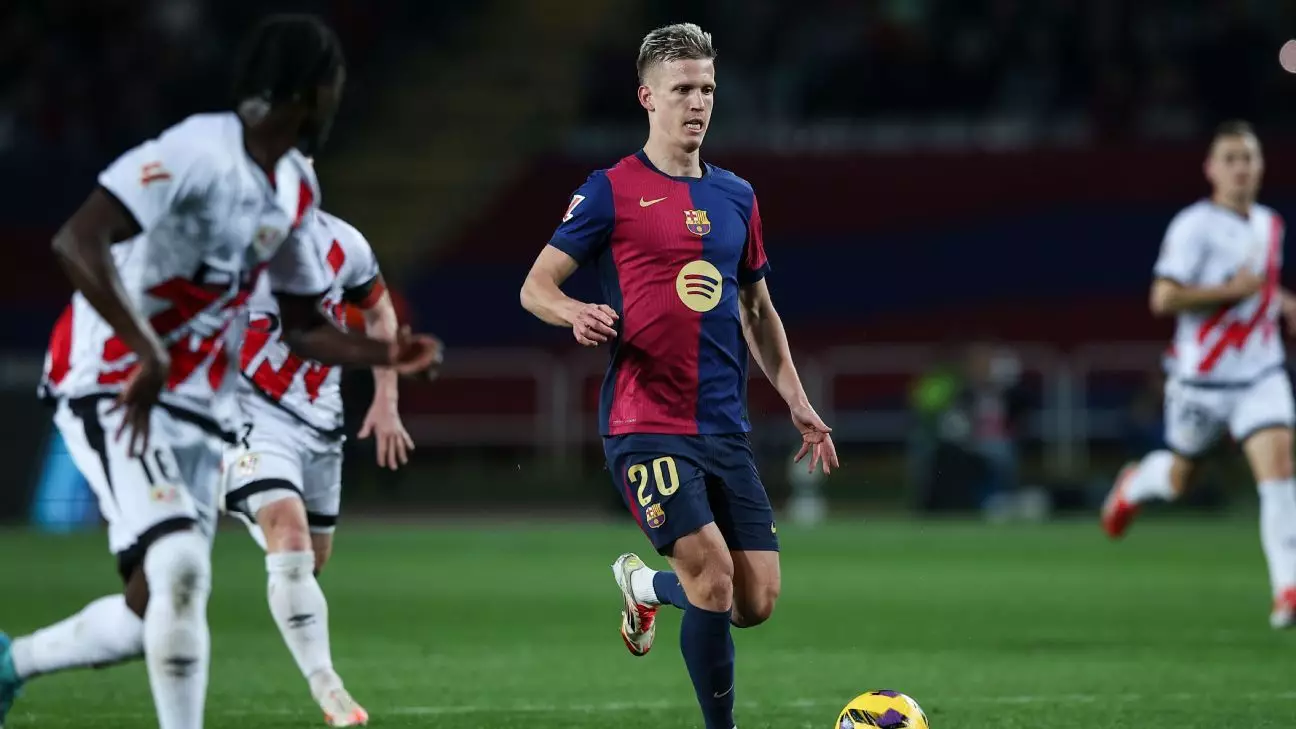The unfolding drama involving FC Barcelona and LaLiga reveals the deep-rooted tensions between financial regulations in football and the aspirational ambitions of clubs. Following a recent ruling from Spain’s sports authority, which allowed Barcelona to retain two key players—Dani Olmo and Pau Víctor—the league has chosen to retaliate by appealing this decision. This concerted effort by LaLiga illustrates the dichotomy between the league’s rigid financial scrutiny and the more permissive stance taken by regulatory authorities, thus setting the stage for a potential conflict that echoes far beyond the confines of the pitch.
Financial Oversight and Ethical Challenges
At the heart of this dispute lies a significant financial oversight concern. Barcelona, known for its storied history and financial challenges, allegedly missed a crucial deadline for registering players due to insufficient compliance with financial regulations. The provisional ruling granting them the ability to keep Olmo and Víctor has been met with skepticism from LaLiga, which argues that Barcelona’s financial reports do not substantiate their ability to maintain these players on a permanent basis. The league’s questioning of a €100 million deal involving the sale of VIP seats at the redeveloped Spotify Camp Nou raises ethical concerns unprecedented in LaLiga’s recent history. Here, one is left to wonder—does financial leniency enhance the integrity of the league, or does it set a precedent for future irresponsibility?
Barcelona’s Public Relations Response
Barcelona’s response to LaLiga’s accusations demonstrates a keen understanding of public relations amid a crisis. Their expression of “surprise and indignation” serves to spotlight not only their grievances about alleged confidential leaks by LaLiga but also to position themselves as victims of an overarching managerial malaise. However, such a defensive posture may backfire if it distracts from the core issues at play, namely the club’s long-term sustainability and ethical accountability in financial dealings. The implications of such a stance could reshape fan perceptions and affect future negotiations within both domestic and international contexts.
The Role of Transparency in Football
This saga also highlights a broader narrative regarding the role of transparency in football. LaLiga’s decision to delve into private financial dealings necessitates a closer examination of how clubs maintain financial health. While Barcelona maintains they did not authorize the discussion of sensitive material, such revelations challenge the very foundation of trust, which is crucial for any sporting institution. In the long run, the integrity of football leagues globally hinges on their ability to enforce regulations while protecting the interests of clubs with transparency and fairness. The shifting power dynamics between clubs and leagues underscore a significant tension driven by financial exigencies, and the outcome of this appeal could very well redefine future regulatory frameworks.
This narrative continues to unfold as stakeholders watch closely, anticipating whether Barcelona’s storied legacy can be reconciled with the stringent realities of modern financial governance, or if it will spiral into further complexities, jeopardizing their competitive standing for years to come.

